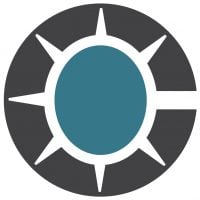Southeastern Illinois Counseling Centers
Drug Rehab Center in Flora, Illinois
- Opioid Addiction
- Dual Diagnosis
- Alcoholism
Southeastern Illinois Counseling Centers provides evidence-based mental health and substance abuse treatment services, including dual diagnosis and opioid addiction, in Flora, IL, with experienced counselors and therapists tailored to individual patient needs.
About Southeastern Illinois Counseling Centers in Illinois
Southeastern Illinois Counseling Centers provides mental health services to those struggling with mental health and substance abuse issues in Flora, IL. The counseling center offers a range of levels of care from outpatient to intensive outpatient, and provides treatment such as Cognitive Behavioral Therapy (CBT), family therapy, group therapy, and individual therapy. The center is accredited by the Joint Commission on Accreditation of Healthcare Organizations (JCAHO) and accepts private health insurance.
Southeastern Illinois Counseling Centers staffs experienced counselors and therapists to optimize the best plan of care for their patients. They specialize in treating dual diagnosis (co-occurring disorders), alcohol abuse, and opioid addiction. Their evidence-based treatment plans are tailored to the individual needs of each patient and offer a supportive environment guided by skilled and caring counselors and therapists. With their combined experience, Southeastern Illinois Counselling Centers is fully equipped to care for their patients and give them the best chance of success.
Genders
Ages
Modality
Additional
Accreditations

JCAHO
Conditions and Issues Treated
Opioid addiction starts when a person becomes addicted to legal or illegal opioids. The addiction can happen quickly, in just a matter of days. Opioid withdrawal can be extremely uncomfortable and lead the user to continue to use even if they want to quit. Stopping using an opioid requires medical observation. Sometimes inpatient treatment with a medically supervised detox is necessary for managing the withdrawal process while learning lasting tools for maintaining recovery. Medications may be used in some cases of opioid addiction.
Opioid addiction is one of Illinois‘s most prominent forms of addiction. It’s treated by detoxifying the body so that the chemicals from the medications no longer impact them and by therapies to correct behavior and target the root of the problem.
Recovery is not simply about stopping drug use. Recovery is working with addiction while recovering mental health issues that are fueling the addiction in the first place.
Levels of Care Offered
This center offers a variety of custom treatment tailored to individual recovery. Currently available are Dual-Diagnosis, Intensive Outpatient, Outpatient, with additional therapies available as listed below.
Addicts who need help with their addiction can enroll in an intensive outpatient program (IOP). But the patient won’t live there during treatment.
IOP involves patients visiting a medical office building regularly for therapy and other services while continuing to live their lives.
IOP is a step up from drug or alcohol detox, but it’s still a phase of recovery, not the end goal. Patients in need of IOP have many options for rehab and treatment.
Outpatient treatment is considered the lower intensity level of addiction treatment. It’s ideal for early phase addiction or lower intensity addictions. It may include weekly sessions instead of daily. It may include weekly sessions instead of daily. Peer group support, 12-step programs, and individual counseling may still be involved but at a lesser frequency than an intensive outpatient program. It is a good choice for someone who doesn’t need to go through a medically supervised detox and who has a supportive home environment. It requires motivation and dedication to commit to the program without constant monitoring.
Therapies & Programs
Individual therapy involves one-on-one sessions between the patient and therapist. It provides patients with a safe environment to openly discuss personal and sensitive issues with the therapist. They find the therapist as someone they can trust. Individual therapy aims to identify the core issues that would have led the patient to substance abuse and address them effectively. The therapist can develop patient-specific customized solutions through individual therapy, which aids speedier recovery.
Family therapy is a group problem-solving that aims to improve communication and relationships between the addict, their family, and sometimes friends. The main goal of family therapy for drug addiction is to create an environment where communication can occur without judgment, hostility, or blame. The therapist is with the family as they learn to communicate differently, especially with the addict when s/he is using. The family can learn to reduce their enabling behavior or rally together and support each other during tough times.
An addict’s family can play a vital part in helping them to avoid relapse because they can spot the warning signs and help them get back on track before it becomes too much of a problem. Family therapy is one of the most effective ways to help addicts stay on the path to long-term sobriety. When a drug addict decides that they want to try and get sober, it takes the support of every person they love to succeed. It can be incredibly difficult for loved ones to watch an addict go through the pain and suffering of withdrawal, but by being there with them and supporting them, they can help to make sure that the addiction never returns.
Groups typically involve meetings with other recovering addicts who can relate to one another’s experiences. They might meet in person or online and typically focus on the process of staying sober rather than overcoming a specific addiction.
In these groups managed by Southeastern Illinois Counseling Centers, addicts can build a sense of community and develop strong emotional connections with others who understand what they are going through. These beneficial relationships can help addicts overcome their cravings and prevent relapse at any point during the recovery process.
There is hope for people who are addicted to drugs and alcohol. Cognitive Behavioral Therapy (CBT) is the solution. CBT focuses on the underlying thoughts and behaviors that caused the addiction problem in the first place and may cause a relapse. This type of psychotherapy addresses negative feelings common in substance abuse disorders. It helps to change them by restructuring thought patterns. It’s about removing negative thoughts and providing long-term benefits while promoting self-awareness, self-control, and healthy ways to respond to negative thoughts. These sessions can be done by themselves or as part of combination therapy.
Payment Options Accepted
For specific insurance or payment methods please contact us.
Is your insurance accepted?
Ask an expert, call (888) 674-0062
Additional Details
Specifics, location, and helpful extra information.
Flora, Illinois 62839 Phone Number(618) 662-2871 Meta DetailsUpdated November 25, 2023
Staff Verified
Southeastern Illinois Counseling Centers Patient Reviews
There are no reviews yet. Be the first one to write one.
Flora, Illinois Addiction Information
In 2016, more than 2,350 Illinoisans died from drug overdoses. More than 5,500 deaths annually occur in Illinois due to the abuse of alcohol and other drugs. 7.17% of Illinois residents reported using illicit drugs in the past month (2018). Substance abuse costs the state approximately $3.5 billion every year.
Treatment in Nearby Cities
- Gurnee, IL (257.9 mi.)
- East Peoria, IL (149.7 mi.)
- South Holland, IL (208.2 mi.)
- Lake Forest, IL (250.7 mi.)
- Geneseo, IL (211.3 mi.)
Centers near Southeastern Illinois Counseling Centers



The facility name, logo and brand are the property and registered trademarks of Southeastern Illinois Counseling Centers, and are being used for identification and informational purposes only. Use of these names, logos and brands shall not imply endorsement. RehabNow.org is not affiliated with or sponsored by Southeastern Illinois Counseling Centers.

